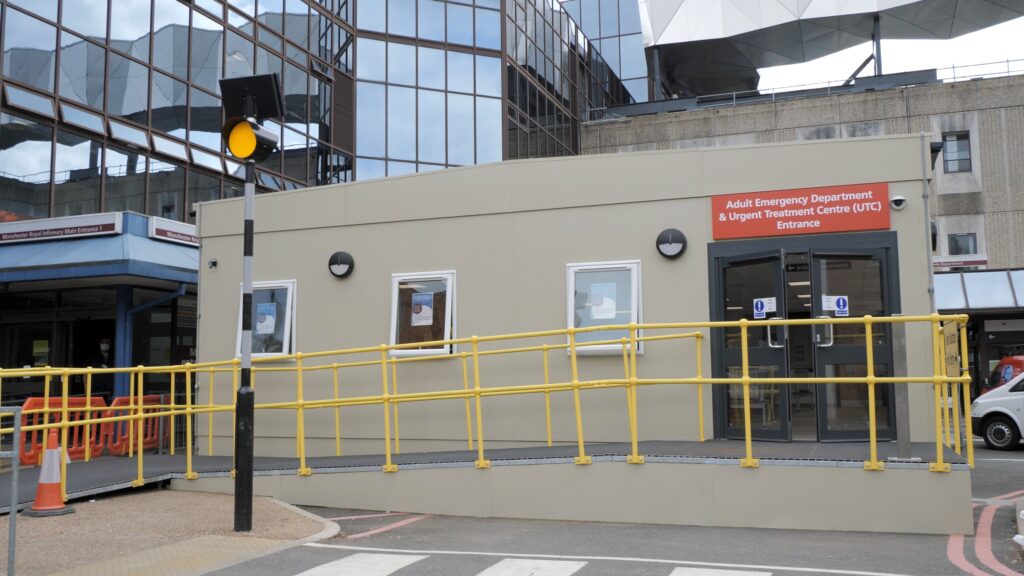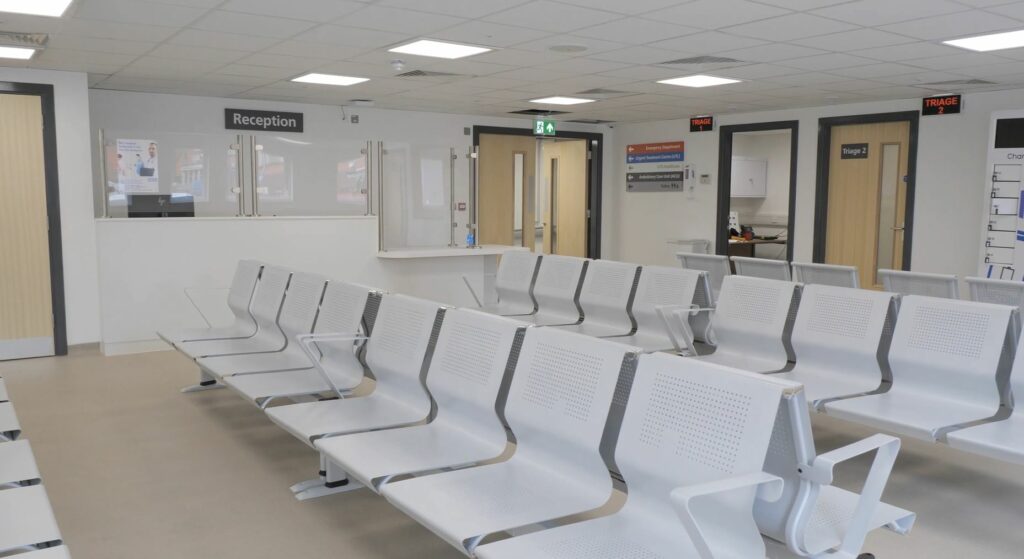
The next stage in the £40 million renovation project to improve the emergency care facilities at Manchester Royal Infirmary (MRI), part of Manchester University NHS Foundation Trust (MFT), is now underway.
In order to keep services running as building work progresses, as of today (Tuesday 17th May), the pedestrian entrances for the Emergency Department (ED) and Urgent Treatment Centre (UTC) have been temporarily moved to the other side of the hospital building.
ED and UTC patients, whether arriving by foot, car or taxi, will now need to use the new entrance, situated in a specially built modular building outside the MRI Outpatients Entrance, a short walk from the previous entrance. Here they will be assessed by clinicians, before being seen at the appropriate department if required.
Patients will still be able to access all emergency care services as usual throughout, 24 hours a day.
Ambulances will still be received at the original entrance as normal.
Alan Grayson, Clinical Director at MRI ED said “The redevelopment of our Emergency Department is a huge, important long-term project that will modernise our facilities to best support the needs of our patients and help our staff provide the very best care.
“This isn’t just about bricks and mortar. We’re changing how we see patients in ways which will make the process ultimately safer, more efficient, and more convenient for all.”
“All our services will be running as normal, and we appreciate the support and cooperation of patients during this time”

Project RED
MRI’s ‘Renovation of Emergency Department’ – known as Project RED – will enhance services across MRI, which is an adult Major Trauma Centre for Greater Manchester.
Improvements will include a more streamlined layout and ultimately, increased capacity, including 10 (up from 6) resuscitation bays and 27 (up from 16) ‘majors’ cubicles.
Plans also include the creation of six new operating theatres, which will support the hospital’s role as one of the regional centres for specialist surgery for Manchester.
In total, construction is expected to take just over three years to complete.
Leonard Ebah, Acting Medical Director at MRI, said: “These plans for MRI ED have been thoughtfully considered to best work in co-ordination with our other hospitals across the Trust, and incorporate the capabilities of our vast variety of specialisms. This major transformation project will mean patients presenting at MRI ED can be seen by the right people and receive the right treatment quicker in a much improved patient environment.
“Looking wider, this upgrade will support a system-wide approach that tries to make sure our patients are receiving care from the right place and via the right channels. This includes guiding our non-emergency patients to NHS 111 in first instance, a service which can direct patients to the appropriate local service, arrange medical appointments, or give self-care advice.”
NHS 111
Anyone who has an urgent medical need that isn’t an emergency and isn’t sure what to do should contact NHS 111 online at 111.nhs.uk or call 111 for free. The service is available around the clock, seven days a week.
NHS 111 can provide self-care advice, signpost to an appropriate local service, or book people in to be seen at their local pharmacy, GP practice or Emergency Department.